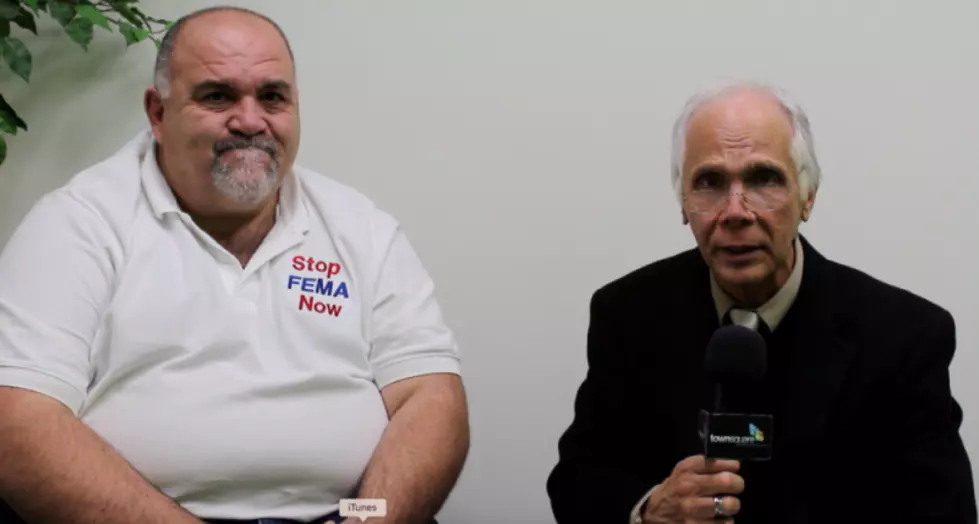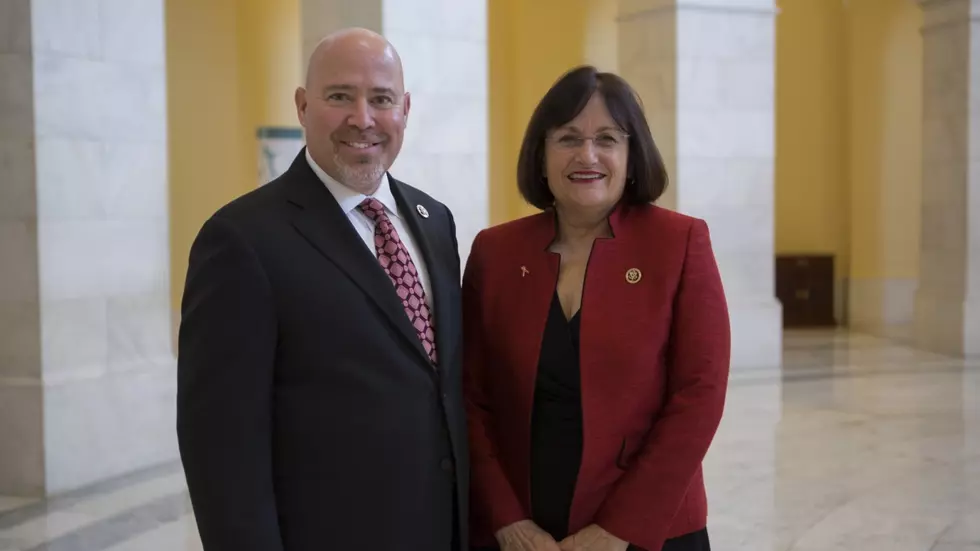NJ federal lawmakers, Sandy advocates rip NFIP surcharge plan for Trump’s wall
Slowly-emerging details of proposed methods to pay for President Trump's wall on the Mexican border draw withering response from Jersey Shore legislators on Capitol Hill, and from grassroots Superstorm Sandy activists - because one component would be a surcharge on premiums in the National Flood Insurance Program (NFIP).
The proposal, as outlined in Politico and The Washington Post, relies heavily on budget cuts that would slash funding for the U.S. Coast Guard, the Transportation Security Administratoin (TSA) and the Federal Emergency Management Agency (FEMA).
The Office of Management and Budget, in the context of the NFIP surcharge, reportedly is asked to limit the appended fee to low-value homes, according to the Post. Even an effort to minimize or localize a rate hike does little to assuage Ocean-Burlington County Congressman Tom MacArthur (R-3).
"The victims of flood claims have really struggled enough," MacArthur told columnist Herb Jackson. "Premiums have been increasing at pretty significant rates, and in a lot of cases people didn't get treated fairly in the process. So I think to add another surcharge, to me, the two should not be connected."
MacArthur issued his comment on the heels of his terse questioning of NFIP Director Roy Wright during a subcommittee hearing on the program's reauthorization.
Acknowledging that FEMA mismanagent, specifically with regard to Superstorm Sandy in 2012, predates Wright's supervision, MacArthur warned him that the agency's accountability is under intense scrutiny.
MacArthur reminded Wright that of the 144,000 Sandy-related flood claims submitted, 73,000 were from New Jerseyans, and 36,000 were from his district.
"Do you know how many people...are still out of their homes? Now, nearly five years later? Thousands," he remarked, citing a "gap" in the financial support chain that includes SBA loans, RREM grants through FEMA, insurance coverage and savings, which still leaves them short of enough to obtain certicates of occupancy.
"Getting paid fairly at every step of that chain is absolutely essential for my constituents.
Monmouth-Middlesex Representative Frank Pallone (D-6), already at odds with the Trump Administration over the push to repeal and replace the Affordable Care Act that he helped author, fumed in response to the NFIP surcharge concept.
“Throughout his campaign and presidency President Trump has repeatedly tried to deceive the American people by claiming that Mexico will pay for an impractical and unnecessary border wall. Now with his lie becoming apparent, President Trump is turning to working families, many of whom suffered during Sandy, to pay for his beloved wall. I will fight any proposal to place the burden of President Trump’s extreme immigration policy on flood insurance policy holders and New Jersey’s working families.”
In a prepared statement, U.S. Senator Robert Menendez (D-NJ) echoed Pallone's outrage:
"It is outrageous to rifle through the pockets of Sandy survivors/ NFIP Flood policyholders, who can barely afford to stay in their own homes to pay for a wall along the Mexican border."
George Kasimos, the Seaside Park realtor whose lone voice in the wilderness through Stop FEMA Now became a roar, enumerated his objections in a mailing to his organization's followers.
- The NFIP is already drowning in 25 Billion Dollars in Debt (due primarily because of NFIP mismanagement)
- Flood Insurance premiums are already unaffordable and will continue to skyrocket, adding a “surcharge” will force many more to lose their homes.
- What valid reason would NFIP flood policy holders be singled out to bear a larger burden of the cost of the wall.
- Taxing a particular segment of the population would be unfair. Everyone across the country would equally need to bear the cost.
WOBM News has not obtained access to the detailed report. Still to be considered are how the Coast Guard would manage a possible $1,300,000,000 budget cut; and what potential TSA and FEMA budget cuts of a reported 11 percent would mean to priorities in the Department of Homeland Security, the parent agency, which is targeted for larger allocations.
More From 92.7 WOBM









